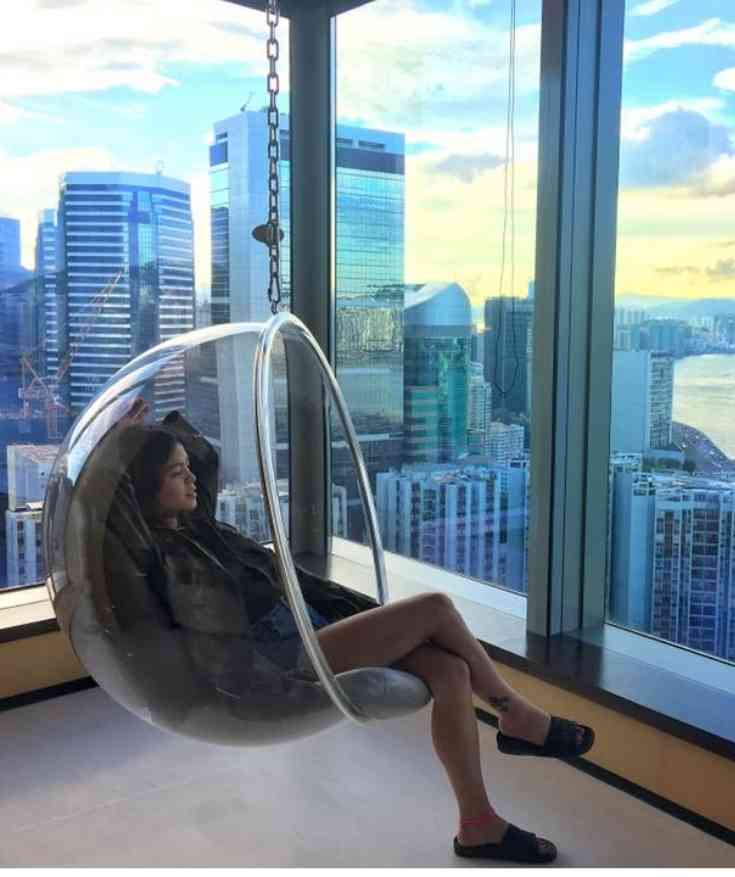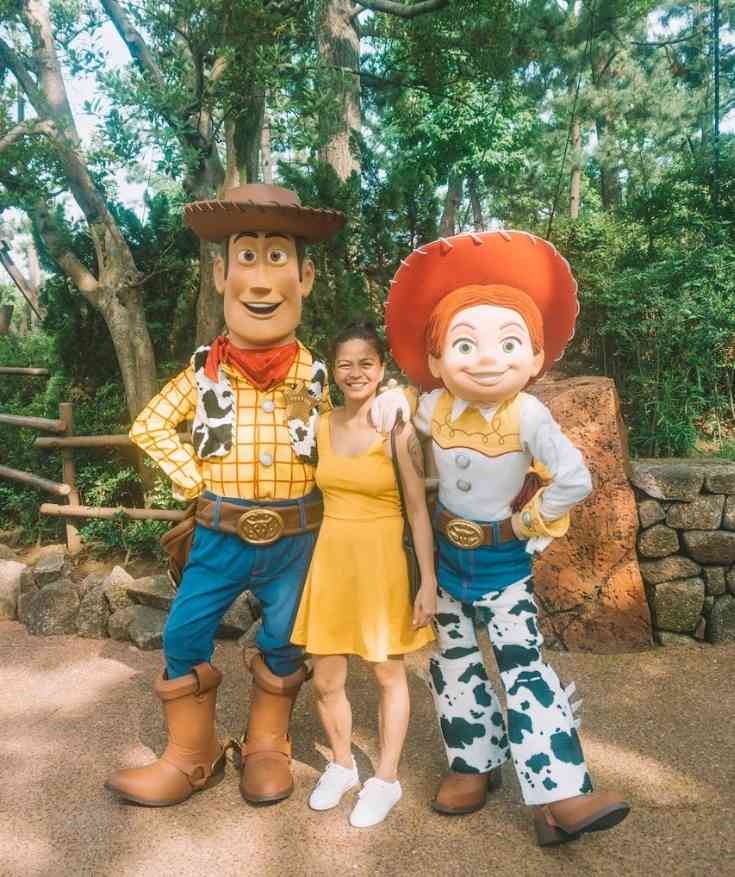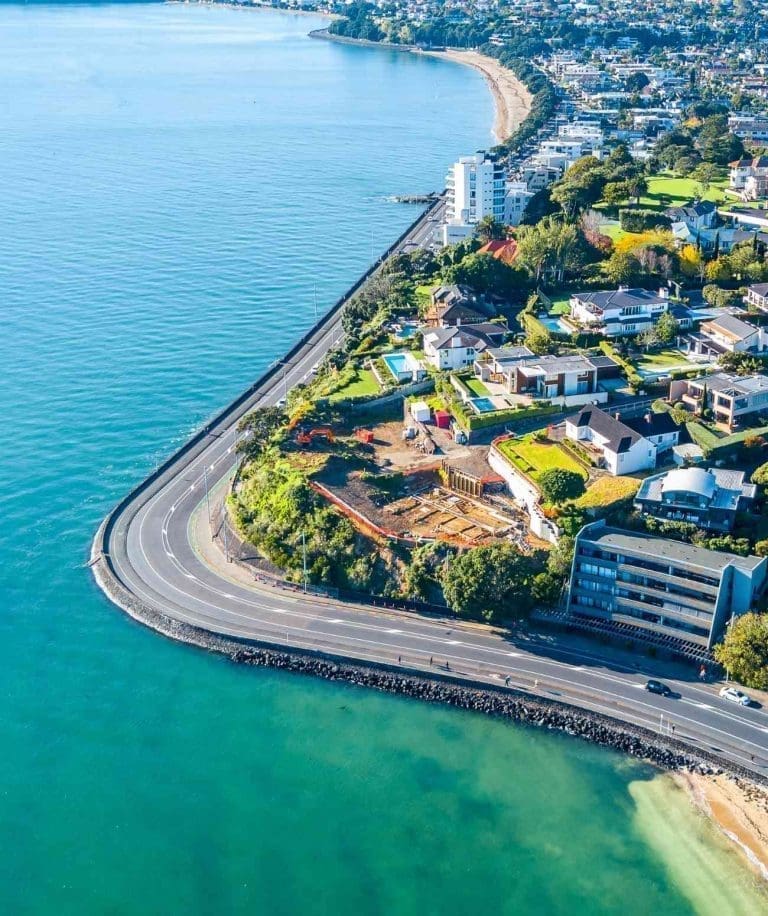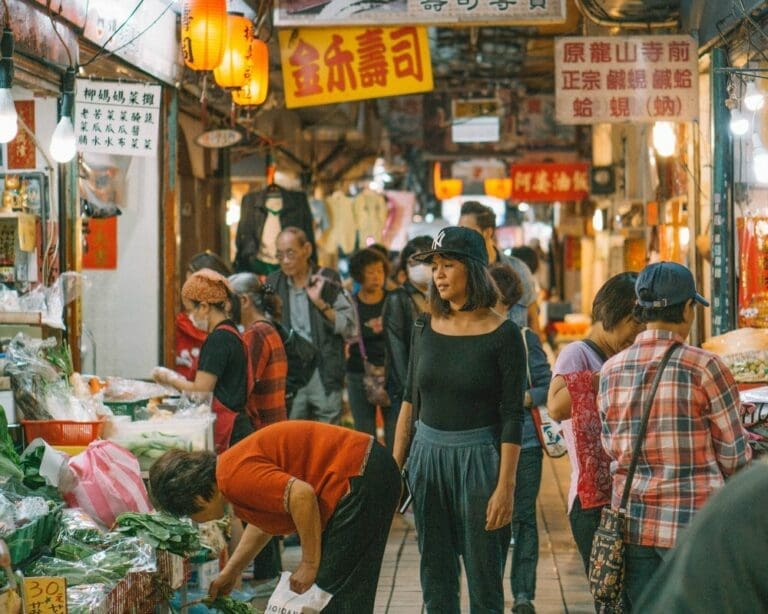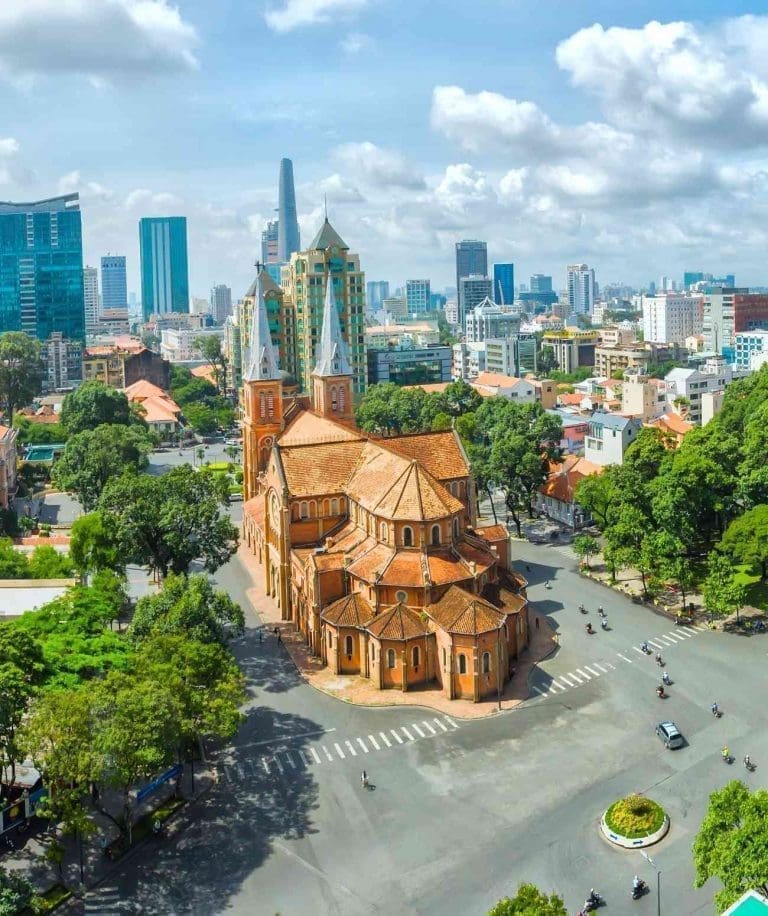Is Kuala Lumpur a good place to live in?
Is Kuala Lumpur a good place to live in? British expats Sasha and Vincent share their living in Kuala Lumpur experiences, plus their many adventures traveling around Asia!
Reader Mail: Hi Trisha! I love all your Malaysia adventures on Instagram! It seems like a great place in Asia. I know you stayed there for a while but do you have posts about living in Kuala Lumpur? I am looking for a digital nomad base in Asia. KL is actually on top of the list. Thanks for the help and for all your blogs!
– Nina, USA
Hi Nina,
Thank you so much for following the adventures on Instagram! I always go to Kuala Lumpur but my stays are only 2-3 weeks long. I did not live there permanently.
With this, I’ve called some friends who can give you some insights about living in Kuala Lumpur! Sasha and Vincent are digital nomads and expats who lived in KL. In this post, they will give you 11 reasons why you should move to KL.
I really love KL so I hope you make it there! Good luck! Now I give the floor to Sasha and Vincent.
Xx,
Trisha
After four years of living in Kuala Lumpur, it is now a place that I now consider my second home. The sights, smells, and sounds of KL are like the greeting of a long-lost friend and when I’m away for too long, I start to miss it.
But how on earth did I end up there?
When my husband Vincent and I decided to live in Kuala Lumpur, our main motivation was food. “Hang on,” I hear you say, “You upped sticks and moved across the world just to get a good meal?”.
Okay wait, let me explain.
Prior to living in Kuala Lumpur, we had moved from Manchester in the United Kingdom to live in Mazabuka: a rural town in Zambia. Mazabuka, for all its other charms (which were really not many), had no very few decent restaurants and cafes.
You may also like: 15 best countries to teach English abroad
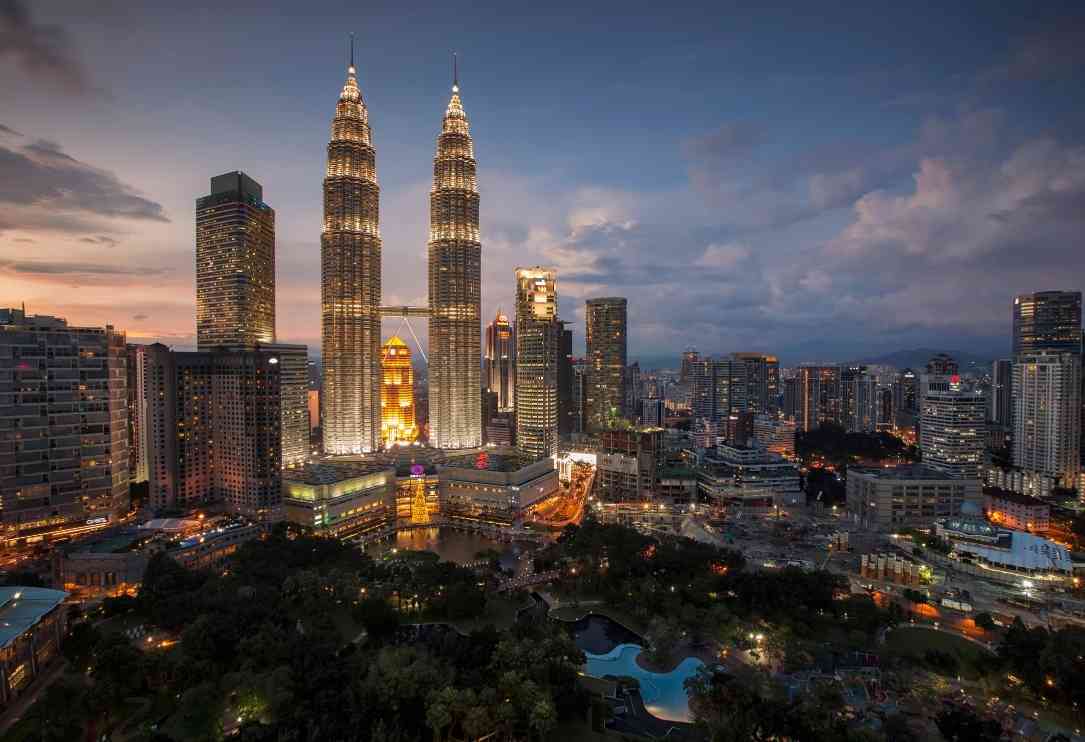
Whilst I could cope with intermittent water and electricity, life without even the prospect of an occasional visit to a restaurant made things so much harder for the big foodie that I am. (I know, I know, first-world problems, but I like to be honest).
And so, we resorted to cooking everything we could at home from nan and pitta bread to falafel, chocolate orange hot cross buns (these were damn good), and eventually full Indian-restaurant-style meals.
Three years later (and with a whole host of Masterchef-level skills) when the time came for us to think about moving to somewhere new, we wanted a place that had an amazing food scene. Enter Kuala Lumpur.
Living in Kuala Lumpur: 11 reasons to move to KL
#1: Food is amazing in KL!
We had previously visited Kuala Lumpur on holiday and had great memories of eating all sorts of tasty things. Malaysians are HUGE on food and the number of new eateries popping up every week is a testament to this.
You can find every kind of restaurant in Kuala Lumpur, from Modern European and fancy South American cuisine to cheap vegetarian Indian no-frills restaurants. Breakfast, brunch, lunch, or dinner, Kuala Lumpur has you covered with places that suit all kinds of tastes and budgets.
For a person who loves food and lives to eat, living in Kuala Lumpur was like a dream come true. Kuala Lumpur is also perfect for vegans and vegetarians.
#2: You can travel cheaply around Asia while living in Kuala Lumpur
We had also done our fair share of traveling whilst living in Zambia and it was something that we wanted to continue when we moved to Asia. This brings me to our second reason for choosing Kuala Lumpur as a place to live: location, location, location.
Over the four years that we lived in KL, we took frequent trips to Cambodia, Vietnam, Myanmar, Japan, Korea, Thailand, Sri Lanka… to name but a few. We decided at one point that we would travel somewhere once a month, either within Malaysia or outside and it was actually so easy to do.
This is because traveling from KL to other countries in South East Asia (or to destinations within Malaysia) is super convenient. KLIA 2 airport is located 45 minutes from the city and is the hub for Air Asia.
#3: Everyone speaks English!
In many ways, living in Kuala Lumpur is also easy for the laziest of travelers because, unlike many other countries, you don’t actually have to learn the local language to get by.
Note: I am not advocating this – I believe that if possible, it is always better to learn some of the local lingo, because you end up having a different experience in a city or in a country as a whole.
We are generally slow travelers who like to spend at least a month in a country, pick up the local language and immerse ourselves in everything that is going on.
Malaysia is a former British colony and the country is made up of three main ethnic groups: Malay, Chinese, and Indians who all speak different languages.
As a result, English is the common language used by most people in Kuala Lumpur and in other urban centers such as Johor Bahru. This makes living in Kuala Lumpur, getting around, and settling into the city a whole lot easier for English speakers.
Having said that, I ended up taking Malay classes at work and I found this really enriched my experience of living in Kuala Lumpur. For instance, when I went shopping at local markets, it was far easier to chat with vendors and explain what I wanted.
Ordering food in Malay and explaining that I wanted less or no sugar in my drinks (because Malaysians love added sugar and if you don’t want this you need to make it clear) was also useful.
I practiced my Malay with my Malaysian friends and colleagues who, after laughing at me for a bit (#standard), were generally very supportive.
My Malay language skills really came into their own when I traveled outside of Kuala Lumpur, to places where English isn’t widely spoken e.g. in Terengganu and Kelantan. So I would recommend picking up some useful words and phrases so that traveling around Malaysia is easier and even more enjoyable.
#4: The Malaysians are friendly, funny, and generally amazing people
Malaysia is often described as being one of the most diverse countries in Asia and when we were living in Kuala Lumpur, it was easy to see why. The city itself is a rich melting pot of religions, ethnicities, and cultures: Indians, Chinese, Malays, Arabs, Pakistanis, Indonesians, Buddhists, Hindus, Muslims, and Christians all inhabit the city.
This is also reflected in the number of festivals celebrated across the country from the Hindu festival Deepavali to Eid at the end of Ramadan. This also means that there are a high number of public holidays (and so more time to relax and travel!)
The diversity of Malaysian people was one of the things we loved about Kuala Lumpur because it meant that we were exposed to a range of different experiences. During my first few months in Kuala Lumpur, one of my friends from work invited us to spend buka puasa (also known as iftar, the breaking of the fast during Ramadan) with her family.
She took us to a Ramadan bazaar near her house – this is basically like a huge open-air market, where families can pick up ready-made food to break their fast later in the evening.
The place was packed with stalls selling all sorts of delicious foods that I had never seen before – in the end, we were led by our stomachs and just bought a whole load of things to try.
Visiting the Ramadan bazaar and then breaking fast with my friend’s family was such a memorable experience for us and a great introduction to Kuala Lumpur.
This brings me to my next point: the people are hella friendly. I wasn’t sure how easy it would be to make friends in a new city but there was one thing I wanted for sure – local KL-ites (no offense, but I didn’t decide to live in Malaysia so that I could just make friends with other British people).
This turned out to be easier than I thought – I ended up making a lot of Malaysian friends through work and when I joined a gym during my second year in the city (yes, it took me that long to include exercise in my lifestyle) I made some more friends there.
I found people to be really kind, friendly, hospitable and most of all, we had a shared love of eating. What more do you need?!
I think the friendliness of Malaysians is typified by the concept of ‘open house’ which basically happens during festivals such as Chinese New Year, Eid, or Deepavali. In essence, ‘open house’ means that the host’s house is open to neighbors, friends, and other guests and when you visit you will usually be fed to your heart’s content.
During one Eid, I went with my friends to an open house in the morning, followed by one in the afternoon, and by the time I got to my final one of the day, with my jeans bursting, I found that I could no longer eat anything and simply had to pick at my food.
As well as being super friendly, Malaysians are also hilarious. People have a fantastic sense of humor and are more than happy to make fun of themselves and you. Be warned, the humor can sometimes be sarcastic but this is precisely the reason that we loved Malaysians so much – the banter was always totally on point.
#5: There are expat communities in Kuala Lumpur
Whilst we met most of our friends through work and via the gym, Kuala Lumpur also has a good expat scene. Most people use Internations, which holds networking and mingling events for expats and Malaysians in Kuala Lumpur and also arranges other activities such as Bahasa Melayu classes for those looking to improve their knowledge of Malay.
There are also a number of forums on the Internations website where KL newbies can ask advice and questions as well as connect with people from their own country.
Meetup also has a Kuala Lumpur expat club that hosts a range of regular social events from wine tasting to movie nights. We also met people through an experience called Plate Culture, which was an online platform that connected people in KL to those who love to cook and entertain guests.
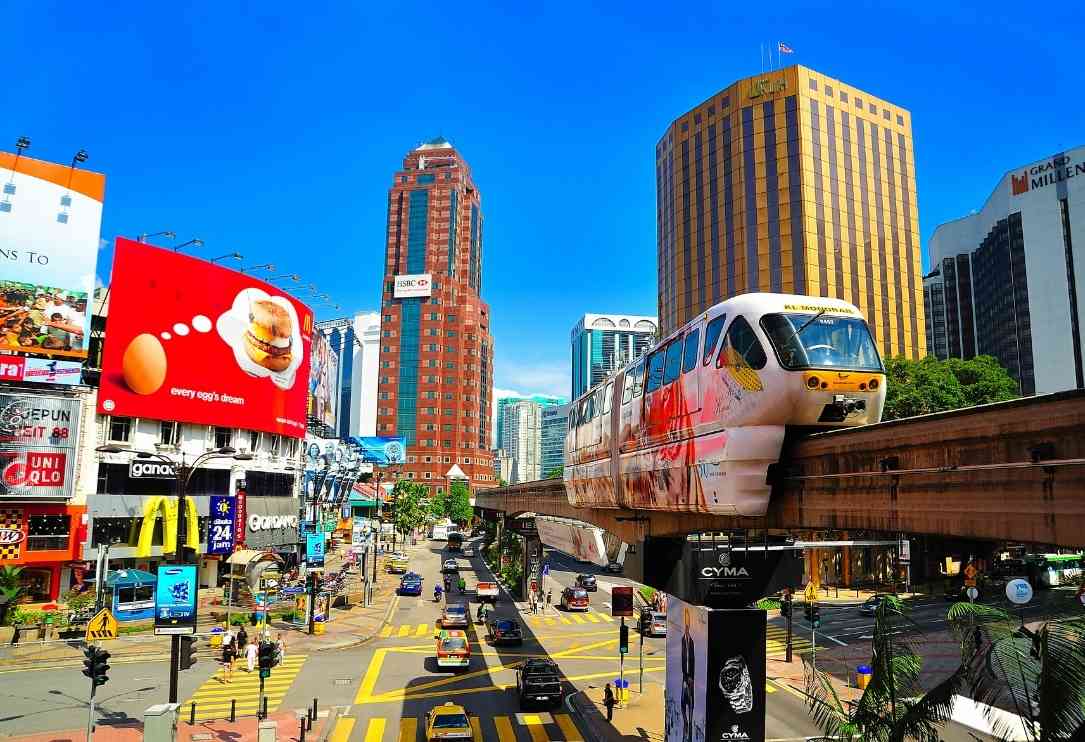

It was essentially like a supper club: we decided to try Persian food, cooked by an Iranian expat and we ended up having dinner with the host and 4 other people that we hadn’t met before.
It was a really unique experience and a chance to try authentic, home-cooked Iranian food as well as meet interesting people. Whilst Plate Culture is no longer running, there are a number of supper clubs still operating in KL, which we’d definitely recommend.
There are also some useful Facebook groups for Expats in Kuala Lumpur: on these groups you can ask anything – I’ve seen questions about immigration issues, people looking for tennis partners and others asking even where to buy fresh leafy greens!
#6: Cost of living in Kuala Lumpur is affordable
The cost of living in Kuala Lumpur really varies depending on the kind of lifestyle you want and your salary. Our two-bedroom/two-bathroom apartment costs us 3500MYR/£650 per month.
Water rates in Malaysia are super cheap – my water bills were usually around 20MYR per month. Gas comes in the form of propane bottled gas and is also reasonably priced, especially given that one bottle of gas can last you 6 months.
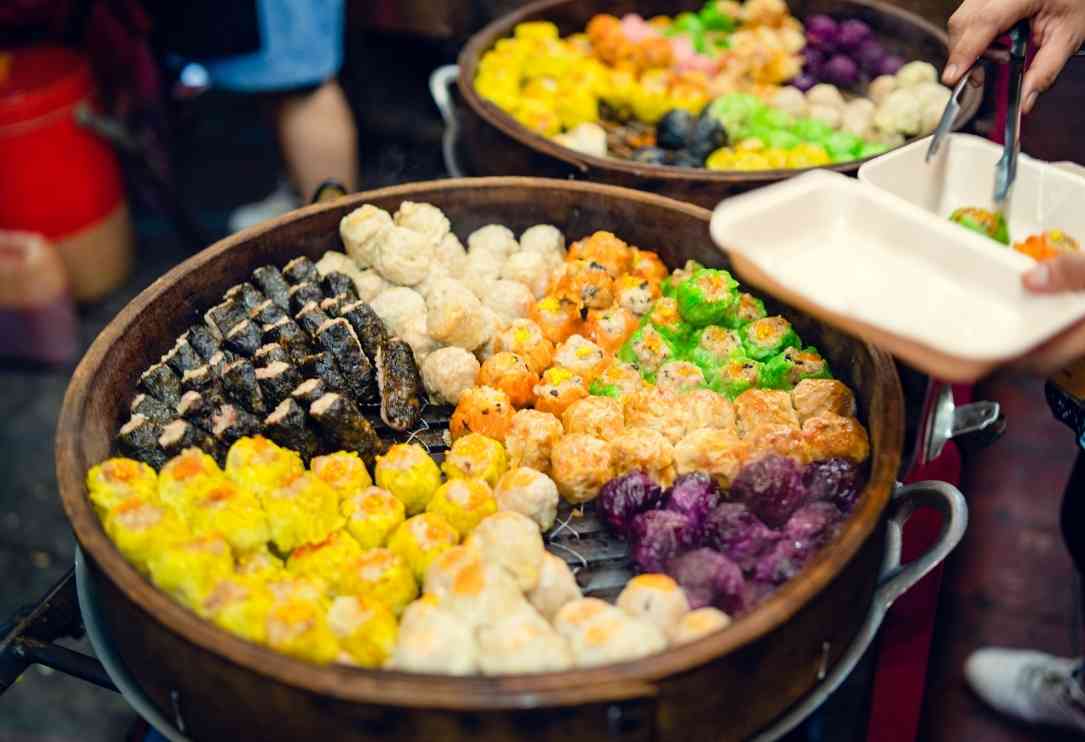

However, electricity bills can hit your wallet hard, especially if you use the air conditioning a lot. We chose an apartment with ceiling fans in each room to keep our electricity costs down – on a good month our electricity bill was 150MYR, but on a bad one, it was sometimes more than 300MYR!
As we were always quite busy with work, we mostly tended to shop at supermarkets, which actually turned out to be pretty expensive: our supermarket shops could sometimes be 400MYR (£74) per week. Convenience sure does cost.
Buying fresh fruit and vegetables from a local night market aka ‘pasar malam’ is much much cheaper as is going to the grocery stores in the Little India area (such as the Modern Store Indian Grocery), which sells items such as lentils, rice and spices at decent prices.
If you do this, a grocery shop for two people for a week could cost you XXX instead.
#7: Kuala Lumpur has efficient and cheap public transport
Public transport in Kuala Lumpur is very cheap. The public transport system in Kuala Lumpur has improved massively over the last few years – when we first arrived in the city there was only the LRT (Light Rapid Transit) system and the KL monorail, neither of which offered enough coverage of the city, resulting in us having to use taxis quite a lot.
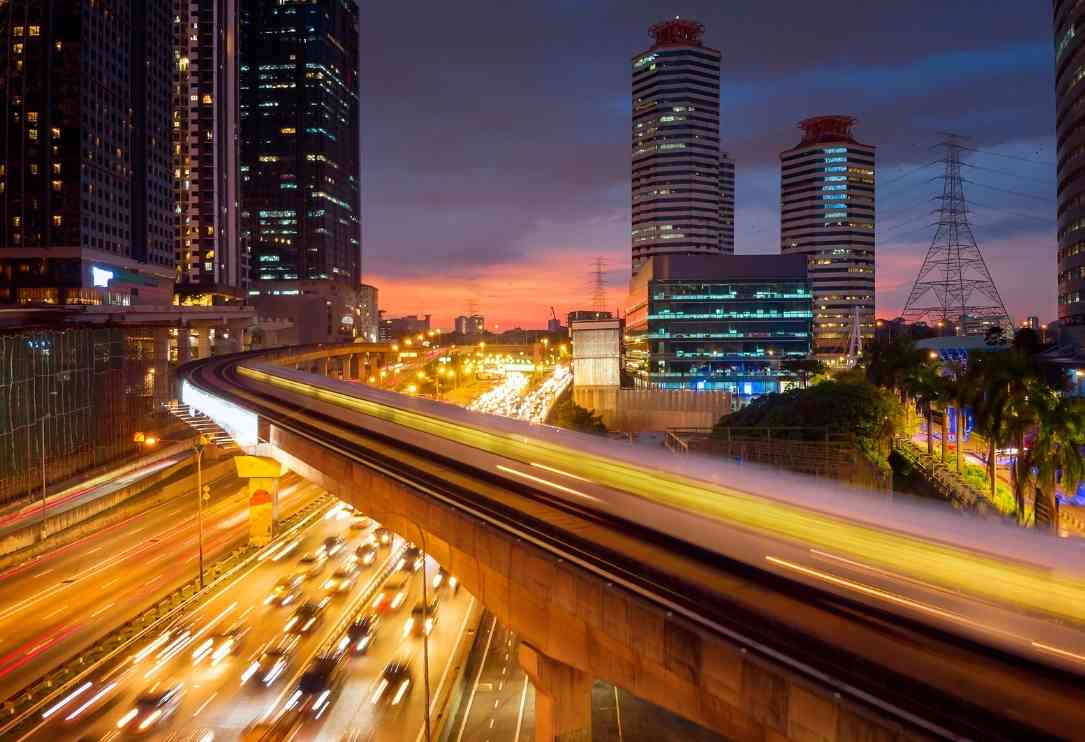

These days, the LRT network has expanded and there is also an MRT (Mass Rapid Transit) system that is faster and links the city center to 31 suburbs. This is being extended even further and is expected to be completed in 2023.
The typical fare cost on the train starts at about 1.10MYR up to 8MYR. If you have a MyRapid Touch’n’Go card, the fare is even cheaper.
#8: Kuala Lumpur has ride-sharing apps
If you don’t want to use public transport, Kuala Lumpur has a number of ride-hailing services. Grab is the South East Asian version of Uber and has the largest number of cars and drivers across the city. However, their fares tend to also be the most expensive (although compared to taxi or Uber fares in the UK it is still pretty cheap).


Grab has also recently implemented a cancellation fee. A 15-minute ride can cost you between 10-15MYR, though they do also operate surge pricing during periods of high demand and also when it rains. (No one on the roads enjoys Kuala Lumpur when it rains because of the traffic jams).
Other useful ride-sharing apps include My Car, Ez Cab, and Mula. I would recommend having at least two of the apps on your phone so you can compare prices. The companies run a lot of promos offering discount fares as well, so you should definitely keep an eye out for those.
#9: You can rent an apartment in KL for as low as $356 USD
Most people in Kuala Lumpur live in apartments or ‘condos’ that come with standard facilities such as a gym and a swimming pool – the latter is fantastic particularly when you consider that it’s sunbathing and swimming weather 365 days of the year.
Other condos have even fancier additional facilities like saunas and steam rooms, tennis courts, and even jacuzzis – though these can sometimes come with a heftier price tag.
The cost of accommodation in Kuala Lumpur varies, depending on where you live, the number of bedrooms you want, and the square footage of the apartment. Prices can range from $356 USD per month all the way up to $3,500 USD!
The further out from the city center, the cheaper rents can be. However, you then have to take into account the amount of time you will spend commuting back and forth to work (especially if your workplace is in the city center). Given Kuala Lumpur’s fairly horrendous traffic jams, this is not something that you should consider lightly.
As an international school teacher, Vincent’s salary included a housing allowance, which obviously helped us a lot when we were deciding how much we could afford to pay for our accommodation.
Another important factor for us was public transport: although I can drive, neither of us wanted to spend money on a car or drive in Kuala Lumpur, and so we decided that we needed to find somewhere that had decent enough public transport links so that both of us could get to work.
When we were looking for an apartment, we used the property website which allows you to narrow down your search by area, number of bedrooms, type of residence (e.g. condo, house, bungalow, etc), and minimum/maximum rent.
It took us around 2 months to find a permanent place to live. When we arrived in Kuala Lumpur, we rented a short stay apartment in the Ampang Park area as it was near to my workplace (I arrived in Kuala Lumpur and literally started work two days later).
This gave us the time we needed to explore different areas of the city and also decide on the kind of apartment we preferred.
We ended up living in Bangsar South because it was close to the area of Bangsar which we really liked but had lower property prices and an LRT station close by so I could travel into the city center for work.
From the LRT station, I could get into the KLCC area within 25 minutes. We also liked Bangsar South because it had a few low-rise condominiums which we prefer.
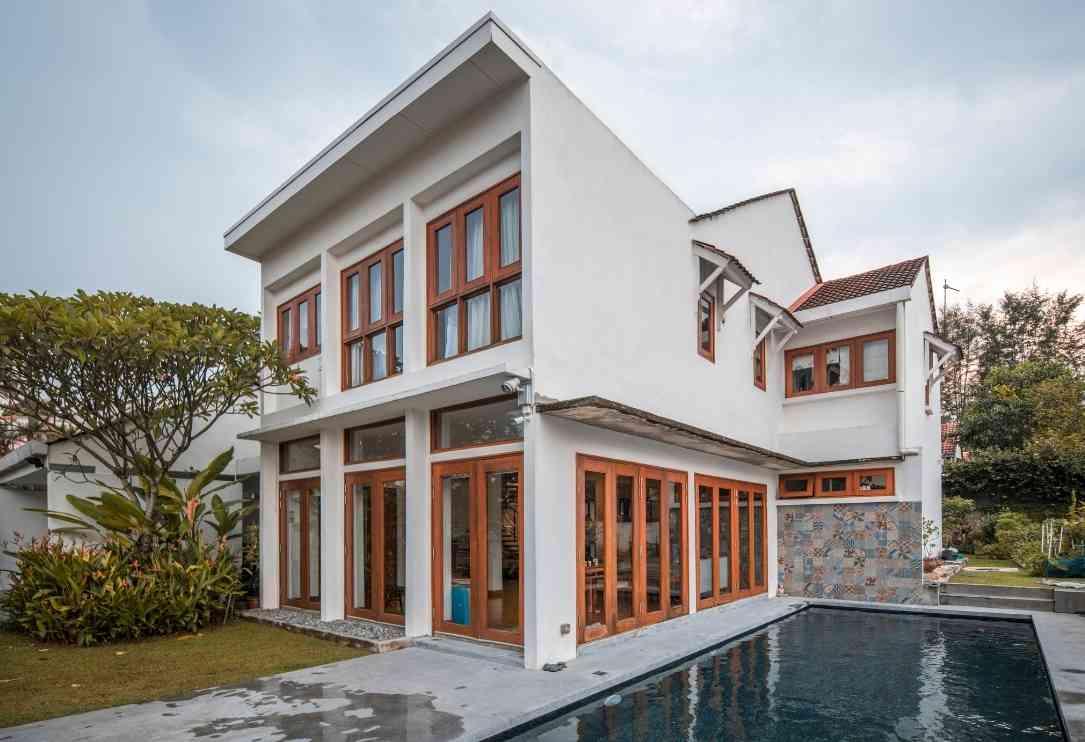

When we moved there, Bangsar South only had a basic supermarket and mall and didn’t really have many other services. However, the area has been hugely regenerated and now boasts three shopping malls, two supermarkets, and some great restaurants and bars.
We also chose this area because some of the accommodation backs onto a forest reserve called Bukit Gasing – we could actually walk out of our condo and access the walking trails in the reserve, which was great. Sadly, some of this is now being built on as the popularity of this area continues to grow.
Nearby Bangsar is a favorite neighborhood for expats and locals alike. Bangsar also has its own LRT station and a great restaurant, cafe, and bar scene, which is one of the reasons it is such a hit with expats.
There are two small shopping malls and I like that the area has a bit more of a ‘community feel’ than other areas in Kuala Lumpur. Living in Bangsar or Bangsar South also offers you a bit more peace and quiet from the hustle and bustle of KL.
Other popular residential areas include Mont Kiara which has a range of high-end but affordable accommodation and appeals to families because there are a number of international schools located in the area.
There are also shopping malls, supermarkets, and restaurants located within walking distance of most apartments. However, I wouldn’t recommend this area for people who don’t drive as there is no MRT or LRT within walking distance.
On a recent trip back to Kuala Lumpur, I stayed in the TTDI (Taman Tun Dr Ismail) area and it would definitely be somewhere I would consider living if I were to live in Kuala Lumpur again. There is a real neighborhood feel to the area, a lot of green spaces, and even a lake nearby.
TTDI also has a mixture of accommodation options – mainly low-rise condos and houses. The area has a number of cute cafes and restaurants and is also close to the huge 1Utama shopping mall which has endless shops, huge supermarkets, and a cinema.
With the new MRT (and a bus that takes you to the station) the area is also really well connected to the city center and lots of other KL suburbs.
For those who like city-center living, KLCC is a good choice. This area is perfect for people who work in the city center and want to just walk to work or prefer to live within walking distance of restaurants, bars, and nightclubs.
As you’d expect, accommodation here does come with a higher price tag.
#10: Malaysia has a generous 90-day visa for tourists
Most visitors to Kuala Lumpur arrive on a tourist visa which allows you to stay in the country for 90 days. We both secured jobs before arriving in KL and our workplaces applied for work visas on our behalf once we had arrived in the country.
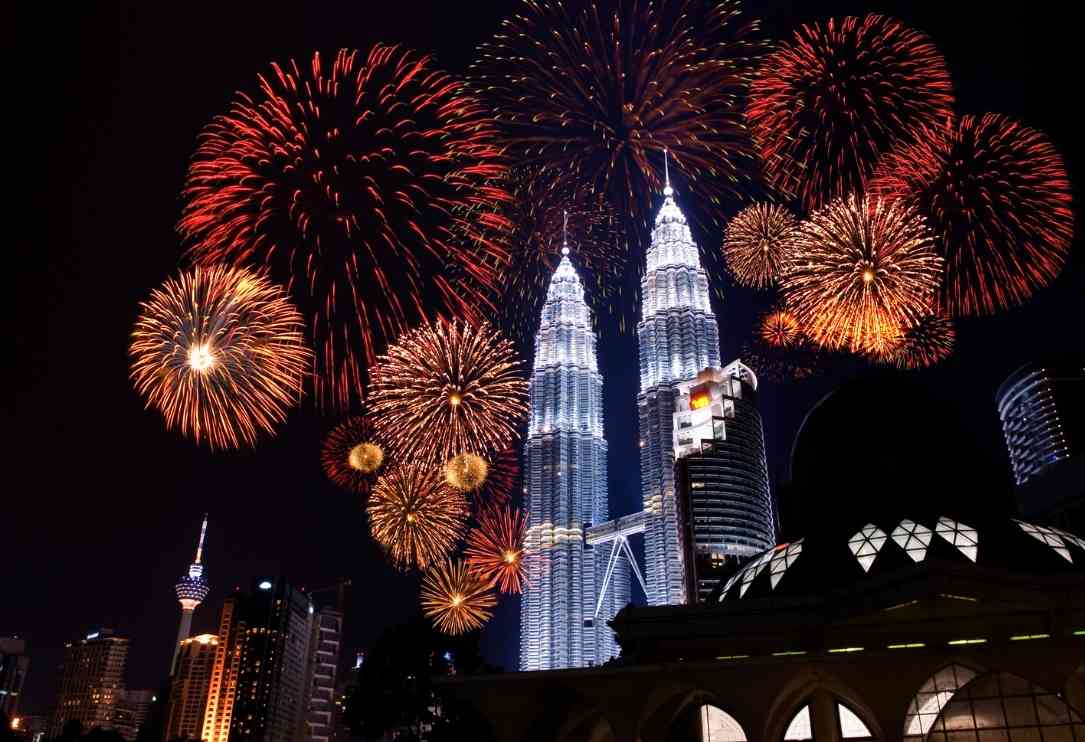

As we weren’t married when we first arrived in Malaysia it was important that both of us had confirmed jobs. If you are married, one person can stay in the country on a work visa whilst their spouse has a ‘spousal visa’ (again, most employers will apply for this on your behalf).
However, if you are on a spousal visa you are not allowed to work.
#11: Healthcare is affordable
Malaysia has a private health insurance system and most companies will provide you with health insurance as part of your employment package. Kuala Lumpur has world-class hospitals and clinics, so if you do fall ill, it’s a good place to be.
Dental care is not usually covered by insurers but I have found dentists in Kuala Lumpur to be fantastic and the prices are cheaper than in the UK. It’s also a very cheap place to have an eye test and buy glasses – mine was a third of the price that I’d usually pay in the UK!
And that’s a wrap! We really enjoyed our four years in Kuala Lumpur and if we were looking to settle down in a city again, it would be on the top of our list.



